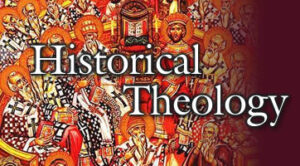MA in Church History
THIS PROGRAM IS ONLY AVAILABLE TO CURRENTLY ENROLLED STUDENTS
MA in Church History Degree Online Program Description
Students who would find Historical Theology interesting will enjoy earning their Master of Arts degree in Church History (MA). The degree is worth 30 semester hours of credit.
Each student will be assigned a mentor to help him or her throughout the program.
This particular course of study uses the time tested materials created by the Institute of Theological Studies (ITS). The courses in the program will contain a study guide, syllabus with homework and exams, and MP3 CDs of lessons by a renowned Christian academic professor in a particular subject. Thesis is not required.
Costs: Tuition: Approx. $336.00 per course. Text books: As required.
Approx. total cost of program without books: $3360.00
Degree Courses
We are indebted to the Church Fathers for the lasting influence of their lives and their works. This course covers the history of the ancient church (Pentecost to AD 500), and the men and writings of that era. Following a historical progression, the course covers the development of doctrine and the main figures in the Patristic Age. Lectures focus on influential men like Irenaeus, Origen, Chrysostom, Athanasius, and Augustine. Significant creeds are also analyzed for their intentions, influence, and correctness. Throughout the course, students are prompted to evaluate their own beliefs as compared to historical orthodoxy.
CH 502 Reformation Church History ![]()
The Reformation changed the world – spiritually, socially, even politically. In this course, learners trace the historic development of the Protestant Reformation from its sixteenth century background to its impact on the world and church today. The course examines the lives and teachings of the leading Reformers (Luther, Zwingli, Calvin, and Knox) and traces the Reformation movement in various nations. In addition, students study the rise of the major Protestant Movements – Lutheranism, Calvinism, Anabaptism, and Puritanism – and the Roman Catholic reactions to those movements. The goal of the course is to apply the Reformation battle cries of faith alone, grace alone, and Christ alone to life and ministry.
CH 503 The History of Christianity in America ![]()
The focus will be emphasizing the influences that have forged the contemporary religious scene. Starting with the nature of Christianity in British colonies prior to the Revolution, the course traces the development of Christianity throughout its tumultuous history in America, including the effects of the Civil War and the Awakenings. The goal of the course is to see the sovereign, merciful workings of God throughout American history and to gain insight into the state of Christendom today.
CH 504 The Theology of Jonathan Edwards ![]()
He has been called one the most brilliant men ever born on American soil. In this course, learners will discover that brilliance by examining the theological insights of Jonathan Edwards. Taking a topical approach, the course covers Edwards’ teachings on all the major points of systematic theology, giving particular emphasis to his unique theological contributions. Topics such as the place of reason, the decrees of God, the nature of justification, and the extent of sanctification are presented and analyzed with the goal that students apply new insights to their own lives and ministry.
CH 506 The History of the Church to the Reformation ![]()
Nearly every major doctrine of the Church was established before the Reformation. In this course, learners discover how the Church’s doctrine, faith, and practice developed from Pentecost, to the time of the Protestant Reformation. The lectures focus on the cultural, political, and economic backgrounds of both the Patristic and Medieval periods of church history, and emphasize the contributions of key figures up to the Reformation. The course culminates with the Renaissance, which was the cultural context for Luther’s Reformation. From Augustine to Wycliffe, students will see how God graciously used human people to accomplish divine purposes.
CH 507 The History of the Church Since the Reformation ![]()
Since the Reformation, the church has experienced countless changes and advancements. In this course, learners survey the development of the Christian church’s doctrine, faith, and practice from the Protestant Reformation to the present. The lectures focus on the cultural, political, and economic backgrounds of the Reformation, Enlightenment, and Great Awakenings, and emphasize the contributions of key figures of these eras. The course highlights the rise and spread of various traditions, including Lutheranism, Calvinism, Anglicanism, Puritanism, Evangelicalism, and Fundamentalism. Students will also study the nature and trends of modern and postmodern Christianity, with the goal of applying insights to contemporary life.
CH 508 The Radical Reformation ![]()
Where the Protestants wanted reform, the Radicals wanted separation. This course examines those groups of the Reformation era that sought a complete break from the Catholic Church. Following a topical and historical progression, learners study the beginning of the movement, its development, and its various manifestations. Students gain insight into those tensions between the Radicals and the Reformers that led to the rise of divisions within the church. The goal of the course is to understand more fully the “shifts” that have formed within the history of the church, enabling them to minister more effectively to contemporary church audiences.
CH 509 The Theology of Martin Luther ![]()
“On this I take my stand. I can do no other. God help me.” Those words of Martin Luther reflect the unswerving commitment to Scripture that permeated his theology and sparked his Reformation. In this course, learners survey the background and setting of Luther’s thought, as well as his teaching on a range of topics that form Christian theology: his understanding of sin and grace, justification and faith, and law and gospel. The course also emphasizes his view of the workplace as an arena to serve God. The goal of the course is to appreciate Luther’s steadfast commitment to the cross of Christ and the authority of Scripture, and to apply such commitment to their own lives and ministry.
CH 510 A history of the Charismatic Movement ![]()
Charismatic theology is more than just a theology of spiritual gifts; worship, Bibliology, sanctification, and ecclesiology are also central. Learners will complete an historical and theological study of the origins and developments of Classical Pentecostalism, Charismatic Renewalism, and Restoration Movements, with emphasis given to theological backgrounds and trends. Lectures also analyze other related movements, including the “Jesus Only” Movement, the Vineyard Movement, and the Toronto Revival Movement. Throughout the course, the pros and cons of the various charismatic movements are presented so that students can make informed decisions on what a “victorious Christian life” entails.
CH 511 Augustine and Medieval Theology ![]()
He is the most influential theologian in church history. His teachings have shaped the understanding of Aquinas, Luther, Calvin, and Barth. In this course, learners study a comprehensive introduction to St. Augustine: his life, his works, and his legacy in the medieval church. The course details his youth, conversion, literary works, and his important battles against the day’s emerging heresies. Surveying Augustine’s life as a pastor, teacher, and writer, students are encouraged to evaluate his contribution to the development of medieval theology and to apply those contributions to their own lives and ministries.
Enroll today at Colorado Theological Seminary to earn your Christian counseling degree online.





